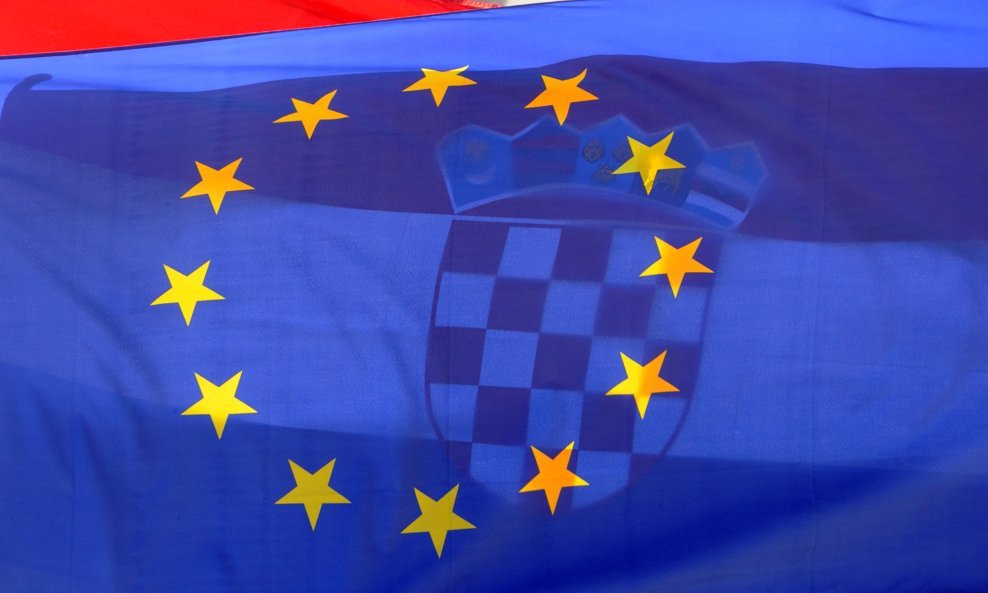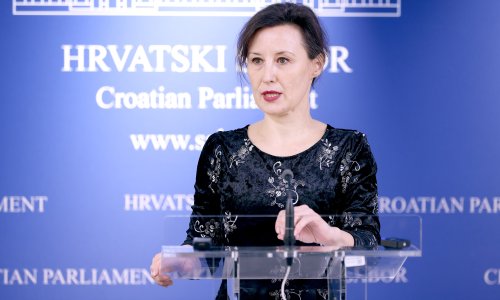European Enlargement Commissioner Stefan Fuele is expected to present the final monitoring report compiled by the European Commission on Croatia's preparedness for EU membership, on Tuesday at a special session of the Croatian government in Zagreb, and according to sources from the Commission, the report's conclusion is that Croatia is fully prepared for the admission to the European Union, set for 1 July.
According to the latest comments by the sources from the Commission on the 15-page final report, which focuses on Croatia's performance in the three most difficult chapters of the acquis communautaire, Croatia is entering the Union with "a clean bill of health".
The final report, which the Commission will release on Croatia in the run-up to the its entry to the EU, deals with 10 areas within the three most difficult chapters of EU legislation - Competition Policy, Judiciary and Fundamental Rights, and Justice, Freedom and Security.
The Commission's previous Comprehensive Monitoring Report, released last October, identified those 10 tasks which Croatia needed to address before its scheduled accession to the European Union on July 1, 2013.
Those issues are: signing a privatisation contract for the Brodosplit shipyard and taking the necessary actions to find a viable solution for the 3. Maj and Brodotrogir shipyards in order to complete the restructuring of the shipbuilding industry; implementing the short-term measures elaborated in September 2012 for increasing the efficiency of the judiciary and reducing the court backlog; adopting the new enforcement legislation in order to ensure the execution of court decisions and reduce the backlog of enforcement cases; establishing the Conflict of Interest Commission so that it starts working; adopting the new law on access to information in order to strengthen the legal and administrative framework in the area of access to information; completing the adoption of related by-laws to ensure the implementation of the police law; completing the construction of border crossing points at the Neum corridor; achieving the established recruitment target for border police for 2012; finalising and adopting the migration strategy with clearly defined measures for the integration of the most vulnerable groups of migrants; and increasing the capacity to translate and revise the acquis so that this task can be completed in time for accession.
Croatia has so far fulfilled eight of those ten tasks.
The remaining two tasks are the completion of the construction of border crossing facilities at the Neum corridor, which is expected to be done by the end of this month, and the translation of the acquis. The Commission is satisfied with the ongoing pace of translation, as the current speed gives the Commission reasons to believe that job will be done by 1 July.
The positive monitoring report and resolution of the Ljubljanska Banka issue with Slovenia have cleared the last obstacles to Croatia's EU entry, making it possible for the remaining EU countries Germany, Denmark and Slovenia to ratify Croatia's EU accession treaty in time for its accession on July 1 as planned.
Germany and Denmark have awaited the findings of the final report to complete the process of the ratification of the treaty.
With the completed ratification in six out of the seven parliaments at various levels in Belgium, the ratification in that country is also nearing completion.
The lower house of the bicameral parliament in the Netherlands has already ratified the Croatia-EU treaty, and now the Senate is expected to follow the suit.
Croatia is the first EU membership aspirant that has been subjected to a pre-accession monitoring mechanism, which checks a country's compliance with its commitments in the period from the signing of the accession treaty to accession.
In that way the EU wants to make sure that a future member is completely ready for membership, so that there would be no need for any post-accession monitoring as it was in the case of Bulgaria and Romania. The mechanism of putting the aspirant under scrutiny in the run-up to its admission has been introduced to avoid a repetition of previous cases when acceding countries suspended all reforms after signing the accession treaty. Pre-accession monitoring therefore is also a form of pressure that is maintained until accession day.
The Commission has released two of three planned monitoring reports on Croatia since the signing of its accession treaty on December 9, 2011.
The first report was made public on April 24, 2012, covering the three most important chapters.
The second, comprehensive report was released on October 10, 2012, covering all chapters, while the third and final report, which is due out on 26 March, will focus only on the three most important chapters.






























